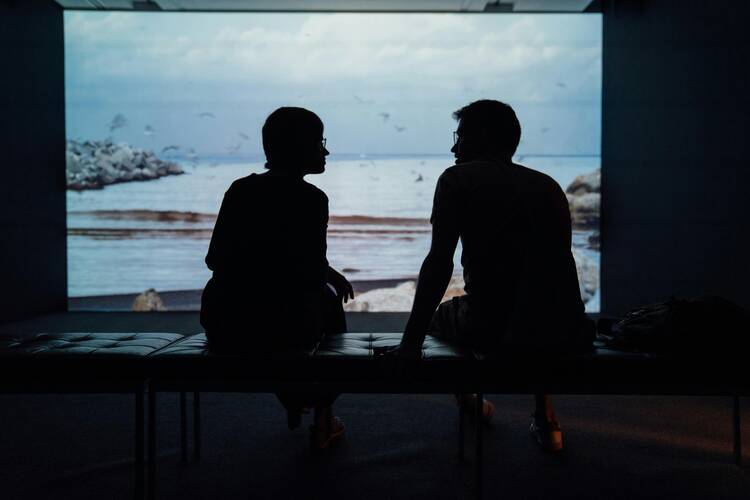A Reflection for the Memorial of St. Bonaventure, Bishop and Doctor of the Church
Find today’s readings here.
Jesus began to reproach the towns
where most of his mighty deeds had been done,
since they had not repented.
You know the feeling of being right. You’re in the heat of an argument, or what really wouldn’t be an argument if the other person could just see what you’re trying to say. For whatever reason, you can’t break through—outrage!
Moses, in horror at the Egyptian treatment of their Hebrew slaves, murders an Egyptian slaver.
Though based on an admirable moral impulse, Moses’ mistake gets him exiled from Egypt.
Then again, the search for truth and moral clarity is a worthwhile project. Moses ends up guiding the Israelites out of Egypt and out of slavery.
Indeed, Moses isn’t condemned to hell in today’s readings—Capernaum is. How can that be? I bet most people in Capernaum weren’t murderers, and Jesus’ judgment here seems uncharacteristically sweeping.
Let’s remember the details—Moses contemplated, repented and enacted God’s will. It took him a bit, but he took direct action and answered God’s call. The sin that receives a truly grave denunciation in today’s readings is collective complicity and collective silence. The people of Capernaum had every chance to see Jesus’ deeds and hear his words, yet did nothing.
In a particularly clouded political moment and digitized world, we will always be in contact with other people, and conflict will follow. I’m on my phone all the time; I see bad headlines all the time; I text and call people all the time. Every day seems to feature stupid arguments of some kind.
What I’ve found helpful in a moment such as this is looking inward. It is the feast of St. Bonaventure, and readers may remember how Pope Francis quoted St. Bonaventure in his encyclical “Laudato Si’,” saying “contemplation deepens the more we feel the working of God’s grace within our hearts, and the better we learn to encounter God in creatures outside ourselves.” Moses agonized about the proper way he could serve God and the people around him. The people of Capernaum weren’t really thinking much.
Most readers of America probably won’t kill someone, but each and every one of us could quite easily slip into Capernaum’s complacency. St. Bonaventure, Doctor of the Church, spent his entire life reflecting on God and God’s will. This isn’t easy work.
To return to that argument mentioned at the beginning, isn’t it better to face that feeling head-on? I’m nineteen; I get that feeling a lot. Why engage, when you know how an argument will go? Headlines are bad, and it’s easy to refrain from reading about it all, to refrain from disagreeing with people.
Instead of hiding away or preparing for combat, I want to contemplate. Maintaining one’s principles and communicating them is most important in the face of injustice.
I feel a bit better striving to be like Moses—witnessing, acting, erring, contemplating, repenting, and acting again—than carrying on as an idle passenger in the world.








